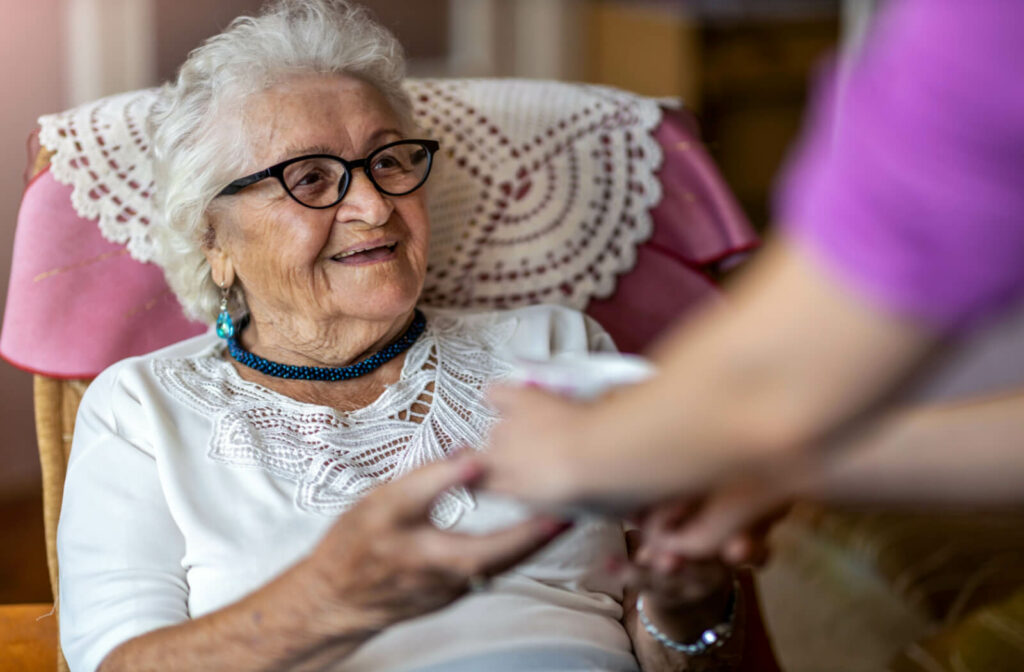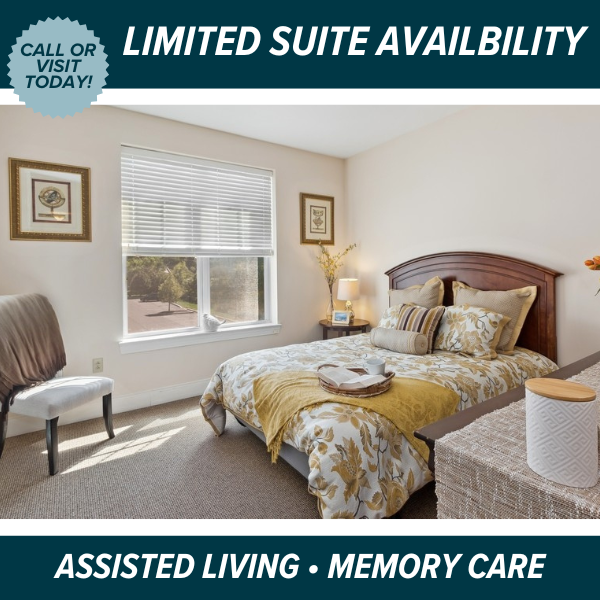When a loved one is living with dementia or any other kind of memory impairment, it’s important to get them the care they deserve so they can live a fulfilling, supported life. That’s when memory care becomes a great option—but how do you know it’s time for memory care?
When your loved one’s memory impairment starts to impact their safety at home, it’s time to think about memory care. This way, they can get the care they need from a team of trained professionals with experience dealing with the complications caused by memory impairment.
What Is Dementia, Exactly?
Dementia is a general term used to describe a wide group of neurodegenerative disorders that affect the brain. It’s used when a person experiences a decline in their cognitive abilities to a point that’s starting to affect their daily life. Conditions like Alzheimer’s disease, Parkinson’s, and other cognitive disorders all fall under this umbrella. They’re often referred to as “memory impairment” as well as “dementia” since these conditions all affect memory.
Living with and caring for a loved one with dementia can be an emotional journey. These conditions create unique challenges that can have a wide range of effects on your loved one. They cause confusion, memory loss, wandering, and behavioral changes. And unfortunately, the exact causes of these conditions aren’t fully understood.
That’s why it’s essential to learn how to recognize the early signs and symptoms that a loved one may be developing dementia.
The Early Signs of Dementia
By learning the early signs that a loved one has dementia, you can get timely medical intervention and get them the support they need. But what exactly are the early signs of dementia?
While everyone’s experience with dementia is unique, common early signs and symptoms include:
- Memory loss, like forgetting recently learned information, frequently misplacing belongings, or relying heavily on memory aids
- Difficulty with familiar tasks, like dressing, cooking, cleaning, or bathing
- Communication difficulties, like forgetting their place in a conversation or using words incorrectly
- Disorientation, wandering, or getting lost in familiar places
- Mood, personality, and behavioral changes, like becoming easily irritable or anxious
If you notice any of these signs in your loved one, it’s time to think about enlisting professional resources to help you.
How to Help a Loved One with Dementia
When your loved one starts to showcase symptoms of dementia, it’s important that you seek professional care. The symptoms of dementia can have a big impact on your loved one, and it may be difficult for you to safely care for your loved one at home. Plus, without professional help, you’re putting yourself at risk of caregiver burnout—a serious condition that can impact your own health.
That’s why turning to trained professional caregivers, like those in memory care communities, can be a good decision.

What Is Memory Care?
Imagine a place where your loved one can live in an apartment, condo, or townhouse-style home. They’re surrounded by a team of caring, trained professionals, all of whom have a wealth of experience supporting adults living with dementia. Round-the-clock compassionate, professional care is available to every resident, and there are plenty of stimulating, interesting activities constantly on the go.
This place exists—memory care! These communities are designed specifically to address the unique complications that dementia can cause. The physical environment is safe, secure, and welcoming.
In memory care communities, your loved one can experience:
- A care team with extensive training in supporting adults with dementia
- A secure, safe environment
- Activities and programs designed to stimulate the mind and keep residents engaged and active
- Therapy programs designed to prevent cognitive decline and support mental, emotional, and physical health
- Dining programs designed specifically to address the nutritional needs of memory care residents
These communities can be an incredible way for your loved one to get the support and care they deserve to live a life of dignity and belonging. Memory care offers a way for your loved one to maintain a quality of life while getting care from a team of trained supporters.
Finding a Memory Care Community for Your Loved One
Choosing the right memory care community for your loved one is an important decision. It’s essential to find a community that aligns with your loved one’s unique needs. That’s when our team at The Bridges at Warwick can help. We’re dedicated to supporting your family. Reach out to us today to find a community for your loved one that truly feels like home.









